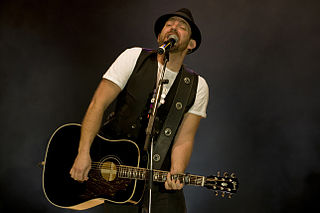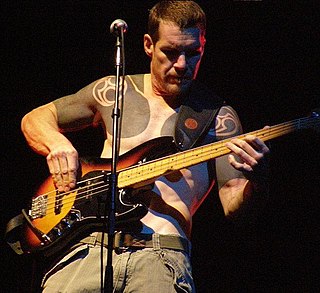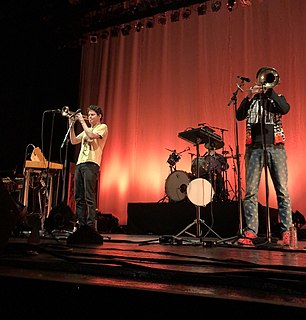A Quote by Michael McDonald
When I was with the Doobies, the style of music was that we all went over the falls with chord progressions, trying to make things as complex and interconnected as possible.
Related Quotes
... We borrowed it all from Coltrane. I started encouraging everybody in the band to listen to John Coltrane - 'Check it out, see what these guys do.' They take one chord, the tonic chord, and just play all over it. 'We can do that too!' I wanted to make our music something really amazing - I wanted it to be jaw-dropping and turn on a dime and do all of those things that I knew music could do, and nobody told us we couldn't do it. I shouldn't say 'I,' though - Jerry Garcia was behind it the whole way.
Every time I finish a song... most of the time it's in my own head, like this sounds too much like a Townes Van Zandt song, or whoever. I realize there are so many melodies and chord progressions in pop and rock music that are so similar that you can kind of trace it back to other things. Most of the time it's just in your head.
Sometimes listening to music can motivate you. It can. But if you're a musician, that isn't always the way to get new ideas because you don't want to take somebody else's ideas. You need to find your own. So if you go to different artistic mediums, whether it's dance or it's visual arts or films or books, stories, sometimes it gets you hearing things, hearing progressions that you wouldn't come up with if you were just listening to other music because you don't want to copy progressions you've just heard.































